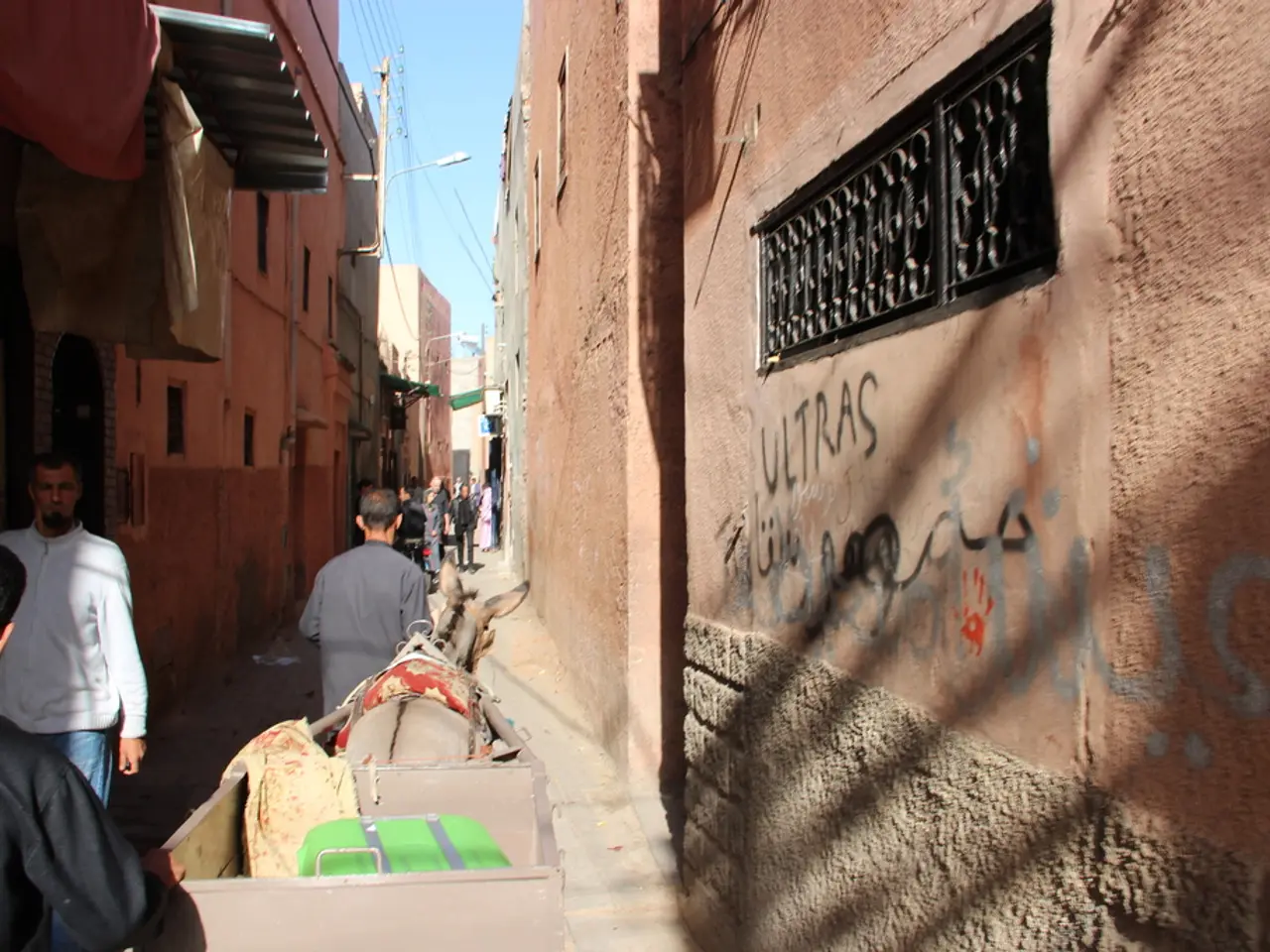Forced or voluntary relocation: Palestinians struggling to hold onto their land face a disastrous situation
In the midst of an ongoing war and deteriorating humanitarian conditions in Gaza, many Palestinians are considering emigration as an "urgent necessity." Bilal Hassanin, one such individual, has been displaced multiple times and is now on crutches, having lost his family home and unable to complete his university studies. He dreams of finding a safe environment outside Gaza.
The Israeli government's proposal for a "safe, voluntary migration" of Gaza residents to foreign countries has been met with resistance and criticism. The plan, announced by Defence Minister Israel Katz and approved by the Israeli cabinet, aims to coordinate transfers in cooperation with international organisations and stakeholders.
However, Palestinians have largely resisted these calls for migration, viewing them as coercive and tantamount to forced displacement. The harsh military operations, blockades cutting off food, water, and medicine, and destruction of homes create conditions that pressure Palestinians to leave but do not provide real choice. International law, specifically the Fourth Geneva Convention, prohibits forcible transfers of protected populations, emphasizing that true voluntariness requires viable alternatives, which do not exist in Gaza's case.
The Israeli government's intentions to depopulate Gaza are not new, going back decades. Statements from Israeli Security Minister Moshe Dayan in 1967 and Prime Minister Yitzhak Rabin in the 1990s suggest a long-standing desire to concentrate Palestinians into small "humanitarian" zones or move them abroad. These efforts are widely criticized as ethnic cleansing or de facto forced expulsion rather than genuine voluntary migration.
Human rights groups and humanitarian organisations have warned of the political and social repercussions of these policies, seeing them as a prelude to a forced displacement scheme under the guise of being "voluntary." Hamas has described the Israeli plan as a forced displacement scheme aimed at "liquidating the Palestinian cause" and emptying Gaza of its inhabitants.
The United Nations has confirmed that "voluntary migration" has no legitimacy in the context of war, siege, and noted that forced displacement is a crime under international law. During the recent war, Israeli Prime Minister Benjamin Netanyahu proposed the establishment of a humanitarian corridor to "transfer Gaza residents to Egypt."
Despite the controversy, some Palestinians are seeking opportunities for treatment abroad and asylum due to the unliveable conditions in Gaza. Zakaria Farajallah, who has been injured three times, is one such individual. His wife, Hanin Akl, urgently needs to travel for a safe environment for her and her children as they have lost their home and have been travelling from one displacement camp to another. Hanin, who holds a bachelor's degree in laboratory medicine, hopes that leaving Gaza will give her an opportunity to build a more stable future for her family.
The new department, established to oversee the plan, will supervise the organisation of departures from the Gaza Strip crossings, conduct security checks, and develop infrastructure for land, sea, and air travel to third countries. However, international and diplomatic resistance, especially from Arab nations and the U.S. administration, have hindered these plans.
In summary, the Israeli government's proposal for "voluntary migration" of Gaza residents is met with resistance and criticism, with Palestinians rejecting these policies as coercive. The potential violation of international law, increased human suffering, and long-term destabilization of the region are significant concerns. The right of Palestinians to remain on their land and the respect for their human rights are paramount in this complex and sensitive situation.
- The Israeli government's proposal for so-called "voluntary migration" of Gaza residents has sparked debate in the realms of general news, politics, and crime-and-justice, given the allegations of coercion and violation of international law.
- The ongoing war-and-conflicts in Gaza have led to discussions about migratory options for displaced individuals like Bilal Hassanin, with serious implications for human rights, politics, and the international community.








